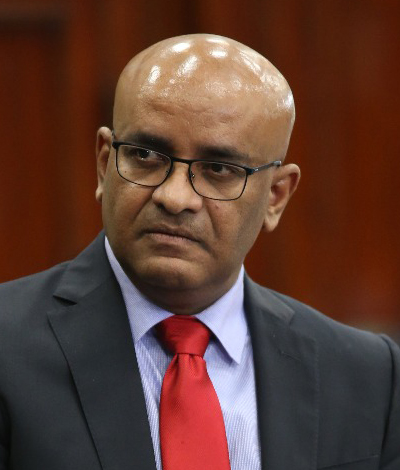The long in the works local content bill and key amendments for the Natural Resources Fund (NRF) Act are due to be tabled this week when the National Assembly reconvenes, Vice President Bharrat Jagdeo has said.
During his keynote address at the Georgetown Chamber of Commerce and Industry’s 132nd awards ceremony and gala last Thursday night said, Jagdeo said the bills would be tabled on Thursday, December 16 and outlined their proposed scope, which include reconfiguring the management of the fund.
In his address, Jagdeo noted the two bills are vital in driving the development of the oil and gas sector and foster transparent and accountable management practices in the sector.
He said that companies might never honour their obligation to include local content in their business model unless there is a legislation enforcing such requirement. “We know exactly what we want in the oil and gas sector. This sector has to work for our people, there has to be shared prosperity and the local content legislation will ensure that happens,” he said.
However, he was quick to note that the bill will not disincentivise foreign investors as the government has worked to strike a balance.
As the government prepares to tap into revenue generated to fund a number of projects, Jagdeo said that it has proposed four changes in the NRF Act in order for greater transparency over the spending and limiting the power of the Minister of Finance, who will have oversight of the spending.
“The first has to do with the oversight committee. We have an oversight committee now with 22 persons… it is almost impossible to get anything down with also most 22 organisations having oversight responsibility. That has to change… so we are going to insert in the management of the fund a Board of Directors that sits between the minister and the management of the fund,” Jagdeo announced.
The Act, which provides for the establishment of an NRF to manage the country’s natural resource wealth, was passed in 2019 by the then David Granger-led government, which had lost a no-confidence vote. It provides for the 22-member committee to include representatives from women’s organisations, the Bar Association of Guyana, the Guyana Consumers Association, the Guyana Extractive Industries Transparency Imitative (GY-EITI), the Guyana Press Association (GPA), the Trade Unions, the Chartered Institute of Accountants, the University of Guyana, the Private Sector and 10 persons from the Regional Democratic Councils around the country.
Jagdeo also said that the bill also proposes a provision for penalties against the Minister of Finance if he/she fails to declare any revenue earned within a three-month period. The Minister can face 10 years imprisonment for the non-disclosure.
Jagdeo said this provision was made to prevent a repetition of what occurred under the APNU+AFC administration, when former Finance Minister Winston Jordan failed to declare that an $18 million signing bonus was received from ExxonMobil.
APNU+AFC had clinched a secret deal in 2016 with ExxonMobil’s subsidiary, EEPGL, for what was styled as a signing bonus but was intended to fund Guyana’s legal fees in pursuing a judicial settlement of the long-running border controversy with Venezuela. The bonus had remained a secret for months until it was revealed in the Stabroek News by oil and gas columnist Christopher Ram.
Meanwhile, Jagdeo also said that the government would be changing the formula for determination of withdrawals from the fund. He indicated that with the current formula there is no transparency of how this sum is calculated to determine what sum can be sustainability withdrawn and will be replaced with a clear formula. He stressed that the powers of the Minister of Finance appointing a macro economic committee will also be deleted.
He explained that the Act was written in a manner mirroring an academic paper, which made it cumbersome to read. With the changes, he stated that every Guyanese will be able to understand its concept.





